Nomadland
description: a 2020 film and book about older Americans who live as modern-day nomads
10 results
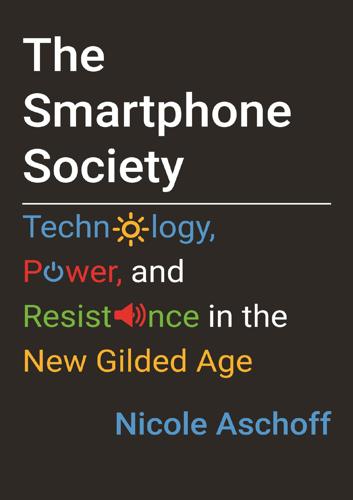
The Smartphone Society
by
Nicole Aschoff
The company says mobile shopping now accounts for more than 40 percent of its revenue and it’s growing by leaps and bounds.47 Every time we impulsively tap a purchase on our phones, someone is on the other end, filling a box with whatever we ordered before handing it to someone else to drop it on our doorstep. Amazon alone employs more than 613,000 warehouse workers worldwide, and adds about 100,000 more temp workers during peaks.48 Jessica Bruder, in Nomadland: Surviving America in the Twenty-First Century, follows the lives of Amazon’s “CamperForce,” a large group of (mainly) retirees who can’t afford to retire, so they live in their RVs and other vehicles and find temporary work in the warehouses of “the everything store” during the holidays. When peak season is over, these “workampers” drive away in what Amazon executives proudly call a “tail light parade.”49 Log on to the Spare5 mobile task app on the long bus ride home, circle the road signs in a series of photographs for some self-driving-car start-up, and you’ve paid for that afternoon splurge on a triple macchiato at Starbucks.
…
Households in 2017–May 2018,” May 2018; US Bureau of Labor Statistics, “Contingent and Alternative Employment Arrangements News Release,” June 7, 2018. 45. Weil, The Fissured Workplace, 87–88, 7, 44. 46. “TNCs & Congestion,” draft report (San Francisco: San Francisco County Transportation Authority, October 2018). 47. Soper, “Smartphone Shopping.” 48. Sainato, “‘We Are Not Robots.’” 49. Bruder, Nomadland, 62. 50. Lee et al., “Working with Machines.” 51. O’Connor, “When Your Boss Is an Algorithm.” 52. JC, “Ridester’s 2018 Independent Driver Earnings Survey,” Ridester, March 29, 2019, www.ridester.com/2018-survey. 53. For a discussion, see Taplin, Move Fast and Break Things. 54. Friedman, The World Is Flat. 55.
…
American Colossus: The Triumph of Capitalism, 1865–1900. New York: Anchor Books, 2010. Braverman, Harry. Labor and Monopoly Capital: The Degradation of Work in the Twentieth Century. New York: Monthly Review Press, 1998. Brooks, Rodney. “The Seven Deadly Sins of AI Prediction.” MIT Technology Review, October 6, 2017. Bruder, Jessica. Nomadland: Surviving America in the Twenty-First Century. New York: W. W. Norton, 2017. Brynjolfsson, Eric, and Andrew McAfee. The Second Machine Age: Work, Progress, and Prosperity in a Time of Brilliant Technologies. New York: W. W. Norton, 2014. Burgess, Jean, Alice Marwick, and Thomas Poell. SAGE Handbook of Social Media.
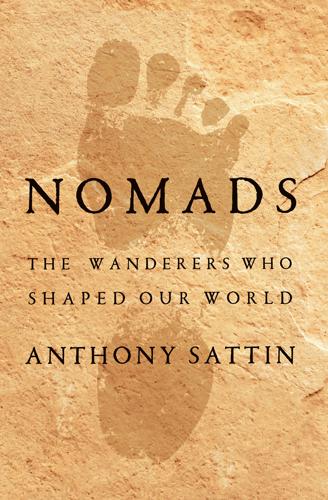
Nomads: The Wanderers Who Shaped Our World
by
Anthony Sattin
Published 25 May 2022
It also lets us glimpse – in the way they live lightly, more freely, in the way they have learned to adapt and to be nimble and flexible in their thoughts and actions, and in the balance they have maintained with the natural world – another way of living, the way that the ‘other’ branch of humankind has chosen to go since the days when we all hunted as a single pack in the generous gardens of the deep past. * For more on the ‘houseless’ in the United States I recommend Jessica Bruder’s Nomadland, the book behind the film. PART I The Balancing Act It will not last. All is change, all is ephemeral. John Stewart Paradise, 10,000 BCE Global population: perhaps 5 million1 Nomad population: most of that number Once upon a time we were all hunters and gatherers. The first to stop hunting and gathering did so no more than 12,000 years ago, which is but a dot on the human timeline.
…
Most of us have settled since then and in the past century most of us have done so in towns and cities. This dramatic shift in lifestyle out of the natural world and inside walls has turned some of us into miscreant kids, unreliable partners, drug addicts, thrill seekers, gamblers and risk takers, and it has left others struggling to resist the lure of wandering through nomadland, longing for the open road, the promise of a new city, a fresh landscape or the next partner. If, as Dr Eisenberg’s study has shown, the nomadic urge is part of our genetic legacy, if as many as 390 million of us might carry the variant nomadic gene, then this has consequences for the way we act now, for the way we look at the past and at the role that nomads play in the stories that follow.
…
It seems very likely that this expanse of the central Eurasia steppes, between the Danube river and Caspian Sea in the west and the Great Wall of China in the east, was itself some kind of diverse alliance, an empire for lack of any other title. We could call it the Scythian Empire. One problem with calling the vast nomadlands an empire lies in our understanding of what constitutes an empire. The common assumption is that they – and lesser kingdoms, such as the newly formed Judah and Israel – revolved around capital cities and a central administration. Pataliputra, Chang’an (Xi’an), Athens and Rome all had walls and armies to protect them from what lay beyond their self-defined limits, anticipating the blunt statement from a twentyfirst-century American president that ‘if you don’t have Borders, you don’t have a Country’.47 But while settled people believed borders and walls were essential for protecting their kingdoms, and cities were equally essential to focus power and administration, nomads knew – as we know in our own time – that they are not good for mobility.

Arriving Today: From Factory to Front Door -- Why Everything Has Changed About How and What We Buy
by
Christopher Mims
Published 13 Sep 2021
Nearly everyone who has ever worked in an Amazon fulfillment center has a story about the moment they realized this. “America’s appetite for sex toys—indicated by the sheer number and variety of dildos and butt plugs passing through Amazon warehouses—is a subject of fascination to many workers,” wrote Jessica Bruder, who interviewed dozens of temporary Amazon workers for Nomadland, her chronicle of America’s surprisingly large population of itinerant temps. Because Tyler is a triumph of evolution who was protected and nurtured as an infant by an extended network of caring adults who tolerated in him, as is the case with all human babies, a period of neoteny longer than that of any other animal on Earth, he was able to acquire the intelligence and finesse required to reach into the (frequently overstuffed) bin and, based only on a name and the two-dimensional image he just glanced at, grab just the right item.
…
See also management systems Bien Hoa, Vietnam, 17, 19 big-box stores, 167 Binh Duong port, Vietnam, 19 BlackBerry, 284, 286 Borges, Jorge Luis, 142 the box. See containerized shipping Brady, Tye, 247–48 Brandeis, Louis, 87, 98, 103 Braun, Wernher von, 144 Brookings Institution, 76, 235 Brooks, Rodney, 218 Bruder, Jessica, Nomadland, 187 Brussels (shipping vessel), voyage of, 26–27, 29–43 Bureau of Labor Statistics, 111 business unionism, 278 BuzzFeed News, 276 Cai Mep International Terminal, Vietnam, 11, 16, 19–23, 26, 27, 30, 32–34, 37 Čapek, Karel, 219 cargo plans, 32–35 carpal tunnel syndrome, 200 Carter, Jimmy, 110 CDC (Centers for Disease Control and Prevention), 9, 68 CDL (commercial driver’s license), 115, 220 cell phones.
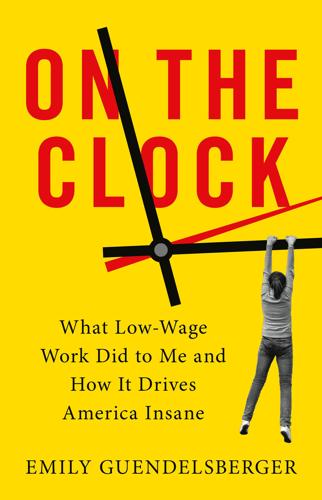
On the Clock: What Low-Wage Work Did to Me and How It Drives America Insane
by
Emily Guendelsberger
Published 15 Jul 2019
Shipler Precarious Lives: Job Insecurity and Well-Being in Rich Democracies, Arne Kalleberg The Disposable American: Layoffs and Their Consequences, Louis Uchitelle The Overworked American: The Unexpected Decline of Leisure, Juliet Schor Free Time: The Forgotten American Dream, Benjamin Hunnicutt The Precariat: The New Dangerous Class, Guy Standing Strangers in Their Own Land: Anger and Mourning on the American Right, Arlie Hochschild The Big Squeeze: Tough Times for the American Worker, Steven Greenhouse The Working Life: The Promise and Betrayal of Modern Work, Joanne B. Ciulla The Betrayal of Work: How Low-Wage Jobs Fail 30 Million Americans, Beth Shulman Nomadland: Surviving America in the Twenty-First Century, Jessica Bruder Where Bad Jobs Are Better: Retail Jobs Across Countries and Companies, Francoise Carre and Chris Tilly “We Are All Fast-Food Workers Now”: The Global Uprising Against Poverty Wages, Annelise Orleck On Wanda Stone Age Economics, Marshall Sahlins Behave: The Biology of Humans at Our Best and Worst, Robert Sapolsky Scarcity: Why Having Too Little Means So Much, Sendhil Mullainathan and Eldar Shafir The Panopticon Writings, Jeremy Bentham Discipline and Punish: The Birth of the Prison, Michel Foucault Snakes in Suits: When Psychopaths Go to Work, Paul Babiak and Robert D.
…
* Songs with a glockenspiel, songs with just a first name as the title, songs where someone yells “YEE-OW!,” etc. * I even get all the way through an Amazon-themed “I’m going to the picnic” one afternoon, from Advil to a Zero-tolerance policy about stealing. * For more about workamping, check out Jessica Bruder’s Nomadland: Surviving America in the Twenty-First Century (New York: W. W. Norton, 2017). * Or I’m pretty sure that’s what he said—I can still only sort of decipher anything said through the megaphone. I confirm it later. * “Water spider” is another odd Amazonian job title. From the few days I spent in packing, I gather that it involves running around keeping stationary workers supplied with materials
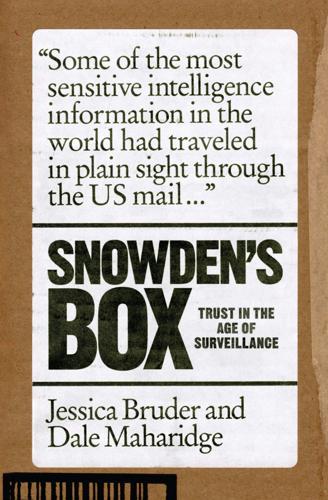
Snowden's Box: Trust in the Age of Surveillance
by
Jessica Bruder
and
Dale Maharidge
Published 29 Mar 2020
Like Dale, I felt utterly unprepared for anything that might happen. Being a journalist was no help — I couldn’t talk about anything that was going on, and, besides, much of my reporting focused on subcultures. I had written a book about Burning Man and was now in the early stages of researching a new one, Nomadland, about older Americans who’d traded traditional homes for vans and RVs, becoming itinerant workers to navigate an increasingly polarized economy. The whole situation continued to make me uneasy. Meanwhile, Snowden had fled from Hong Kong and was stranded in Moscow, where he was seeking asylum. Greenwald was in Rio de Janeiro, where he lived.
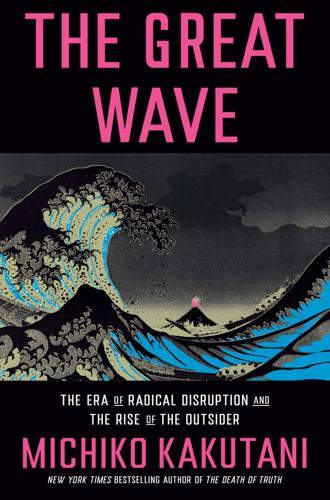
The Great Wave: The Era of Radical Disruption and the Rise of the Outsider
by
Michiko Kakutani
Published 20 Feb 2024
In recent years, the Academy Awards have been dominated by foreign artists and films. In 2023, the surreal Everything Everywhere All at Once, starring Michelle Yeoh as a Chinese immigrant who crisscrosses time and space to save the world, won seven Oscars including best picture, director, original screenplay, and lead actress. In 2021, best picture went to Chloé Zhao’s Nomadland, a haunting portrait of itinerant Americans on the road, longing for both freedom and some elusive sense of belonging. And in 2020, Parasite, Bong Joon-ho’s dark satire of class warfare in contemporary Seoul, became the first foreign-language film to win best picture. The COVID lockdown, which created an increased demand for streaming content at the very time when movie and television production was shut down, meant that many American distributors and platforms, led by Netflix, looked abroad for material—not just the U.K. and Canada, but also India, South Korea, Spain, Japan, Mexico, and France.
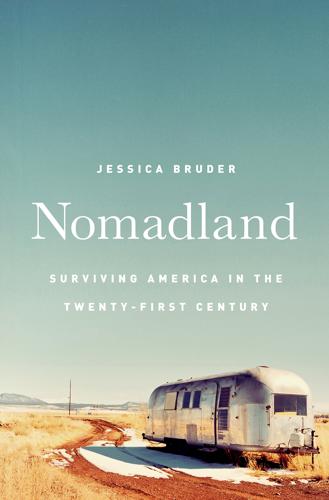
Nomadland: Surviving America in the Twenty-First Century
by
Jessica Bruder
Published 18 Sep 2017
Nomadland SURVIVING AMERICA IN THE TWENTY-FIRST CENTURY JESSICA BRUDER W. W. NORTON & COMPANY INDEPENDENT PUBLISHERS SINCE 1923 NEW YORK LONDON For Dale “There’s a crack in everything. That is how the light gets in.” —LEONARD COHEN “The capitalists don’t want anyone living off their economic grid.” —ANONYMOUS COMMENTER, AZDAILYSUN.COM CONTENTS FOREWORD Part One 1. The Squeeze Inn 2. The End 3. Surviving America 4. Escape Plan Part Two 5. Amazon Town 6. The Gathering Place 7. The Rubber Tramp Rendezvous 8. Halen 9. Some Unbeetable Experiences Part Three 10.
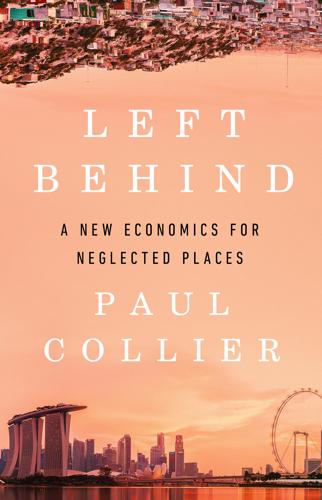
Left Behind
by
Paul Collier
Published 6 Aug 2024
Inevitably, local attitudes to private business became broadly hostile. Although Pittsburgh had the local resources to renew itself, other capsized American cities succumbed to the syndrome and became left behind. In a few, the entire workforce became rootless, a tragedy vividly captured in the book and film Nomadland, in which older nomadic workers in search of temporary employment have lost any connection to a settled urban centre.ii Such total eclipses did not happen in England because social protection, though modest by European standards, is better funded than in America. People could survive by combining publicly funded benefits with a low-wage job.
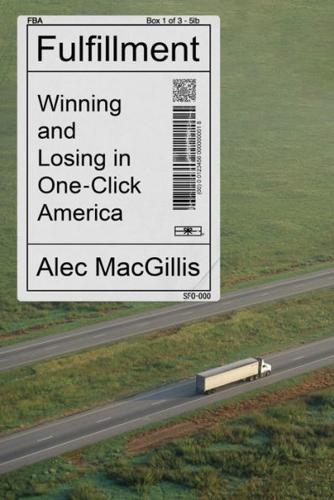
Fulfillment: Winning and Losing in One-Click America
by
Alec MacGillis
Published 16 Mar 2021
fired by an algorithm: Colin Lecher, “How Amazon Automatically Tracks and Fires Warehouse Workers for ‘Productivity,’” The Verge, April 25, 2019, https://theverge.com/2019/4/25/18516004/amazon-warehouse-fulfillment-centers-productivity-firing-terminations. somewhat higher-skilled jobs: “What Amazon Does to Wages,” The Economist, January 20, 2018. the CamperForce of retirees: Jessica Bruder, Nomadland: Surviving America in the Twenty-First Century (New York: W. W. Norton, 2017). almost designed to isolate employees: Emily Guendelsberger, On the Clock: What Low-Wage Work Did to Me and How It Drives America Insane (New York: Little, Brown, 2019), 52. the company deployed tried-and-true defenses: See discussion of failed 2014 unionizing effort by Amazon equipment maintenance and repair technicians in Delaware in Duhigg, “Is Amazon Unstoppable?”
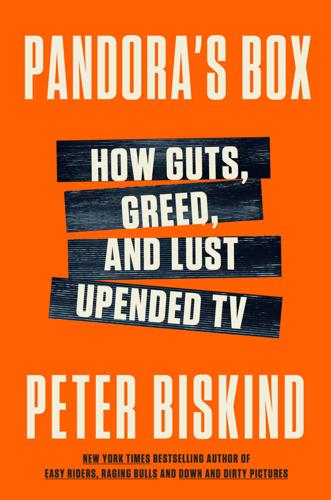
Pandora's Box: How Guts, Guile, and Greed Upended TV
by
Peter Biskind
Published 6 Nov 2023
But ever since he ended up as Marvel’s go-to director for its blockbusters, indie filmmakers who constitute the lifeblood of our movies have jumped from festivals to franchises, traveling through what Washington Post film reviewer Ann Hornaday has called the “Sundance to spandex pipeline.”62 So far as indie talent goes, Marvel’s story is little different from that of The Invasion of the Body Snatchers. Like Favreau, many, many other promising indies filmmakers have been snatched by Marvel. Ryan Coogler went from Fruitvale Station to Black Panther. Cate Shortland traded in her debut indie, Somersault, which premiered at Cannes, for Black Widow. Chloé Zhao went from an Oscar for Nomadland to Marvel’s Eternals without Thanos even having to snap his fingers. Elizabeth Olsen, aka Wanda Maximoff, started her career at Sundance in 2011 with Silent House and Martha Marcy May Marlene. Some of the films, like Black Panther, are better than others, of course, but as critics are starting to notice, most are not even aimed at fan service, but corporate service.